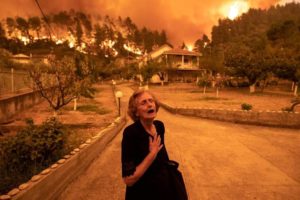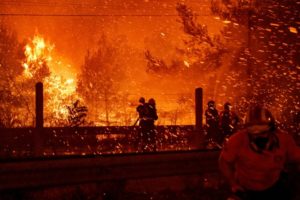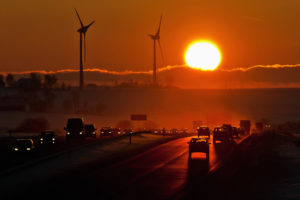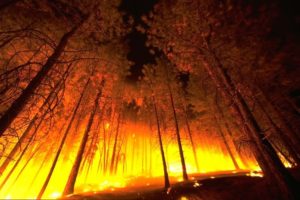From 1999 to 2009, an average of 1.3 structures were destroyed for every 4 square miles burned (1,000 hectares, or 10 square kilometers). This average more than doubled to 3.4 during the following decade, 2010-2020.


From 1999 to 2009, an average of 1.3 structures were destroyed for every 4 square miles burned (1,000 hectares, or 10 square kilometers). This average more than doubled to 3.4 during the following decade, 2010-2020.

We won’t control or reverse (if that’s still possible) greenhouse gas emissions and rising global temperatures in a capitalist world economy that supports and finances the fossil fuel industry.

“The conference balance sheet is clear: on paper, Glasgow clarifies the ambiguous Paris goal by making it more radical (1.5°C is now the target) and mentions the responsibility of fossil fuels; but in practice, the conference did not take any steps to stop the catastrophe.”

The energy industry needs to be integrated into a global plan to reduce emissions and expand superior renewable energy technology. This means building renewable energy capacity of 10x the current utility base.

The account of this disastrous August, when temperatures and drought reached record-high levels even for a warm and dry country like Greece, is literally tragic…

“Many of the changes observed in the climate are unprecedented in thousands, if not hundreds of thousands of years, and some of the changes already set in motion—such as continued sea level rise—are irreversible.”

Who are the biggest emitters or consumers of carbon apart from the fossil fuel industry? It is the richest wealth and income earners in the Global North who have excessive consumption and fly everywhere.

For Marx and Engels, the possibility of ending the dialectical contradiction between man and nature and bringing about some level of harmony and ecological balance would only be possible with the abolition of the capitalist mode of production.

There is no solution to the ecological crisis within the framework of capitalism, a system entirely devoted to productivism, consumerism, the ferocious struggle for ‘market shares’, to capital accumulation and maximizing profits.

A truly perverse element of capitalism is that it feeds on scarcity, thus planetary destruction can open up new markets, monetising products which were once freely available in abundance.

Nearly all of the neoliberal project is organised around supporting efforts by companies based in the more advanced industrialised countries to steal the land and resources of weaker countries.